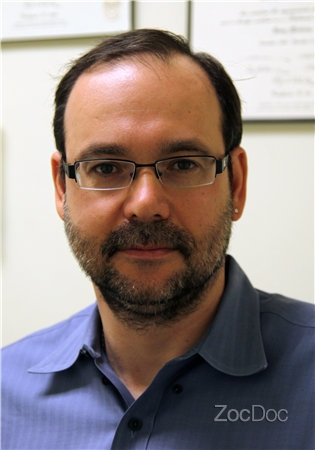Sleep Study Doctor
A sleep study doctor specializes in diagnosing and treating sleep disorders using overnight sleep studies. They monitor brain waves, eye movements, heart rate, muscle activity, and breathing patterns through strategically placed electrodes. Common disorders include insomnia, sleep apnea, and narcolepsy. The doctor interprets the data to customize treatment options like CPAP therapy for sleep apnea or biofeedback for sleep control. They prioritize your safety and comfort to improve sleep health. Selecting an experienced specialist guarantees precise diagnosis and effective treatment. By delving further, you'll gain insights into enhancing your sleep quality.
Noteworthy Details
- Conducts overnight sleep studies to diagnose sleep disorders.
- Monitors brain activity, heart rate, and breathing patterns during sleep.
- Interprets sleep study data and collaborates on treatment plans.
- Specializes in managing conditions like sleep apnea, insomnia, and narcolepsy.
- Ensures patient comfort and safety throughout the sleep study process.
Role of a Sleep Study Doctor
The role of a sleep study doctor involves conducting and monitoring overnight sleep studies to diagnose sleep disorders with precision and accuracy. When you come in for an overnight sleep study, the doctor will make sure you're comfortable and informed about the entire process. They'll apply electrodes to monitor your brain waves, eye movements, heart rate, muscle activity, and breathing patterns. This meticulous monitoring is crucial for diagnosing sleep issues.
During the sleep study, the doctor will continuously observe the collected data, ensuring all parameters are recorded accurately. By analyzing these metrics, they can pinpoint abnormalities in your sleep architecture. This detailed analysis is vital for diagnosing sleep disorders like sleep apnea, insomnia, narcolepsy, or restless leg syndrome.
Post-study, your sleep study doctor will interpret the data to develop a detailed report. They'll collaborate with sleep specialists and healthcare providers to discuss potential treatment options tailored to your specific condition. This team-based approach guarantees that you receive the most effective care.
Throughout the process, the sleep study doctor prioritizes your comfort and safety, providing guidance and support. Their expertise in diagnosing sleep disorders and recommending treatment options is essential for improving your sleep health and overall well-being.
Types of Sleep Disorders
Understanding the different types of sleep disorders, such as insomnia, sleep apnea, narcolepsy, and restless legs syndrome, is crucial for diagnosing and treating sleep-related issues effectively. Each disorder presents unique symptoms and requires specific diagnostic and treatment protocols within sleep medicine. For example, insomnia involves difficulty falling or staying asleep, often evaluated through detailed patient histories and sleep diaries.
Sleep apnea, characterized by repeated breathing interruptions during sleep, typically necessitates an overnight sleep study to monitor respiratory patterns. Narcolepsy, a neurological disorder characterized by excessive daytime sleepiness and sudden sleep attacks, often requires both polysomnography and multiple sleep latency tests for accurate diagnosis. Restless legs syndrome (RLS) entails uncomfortable sensations in the legs, resulting in an irresistible urge to move them, often diagnosed through clinical evaluations and patient reports.
Here's a brief comparison of these disorders:
| Disorder | Key Symptoms |
|---|---|
| Insomnia | Difficulty falling/staying asleep |
| Sleep Apnea | Breathing interruptions, snoring |
| Narcolepsy | Excessive daytime sleepiness, sleep attacks |
| Restless Legs Syndrome | Uncomfortable leg sensations, urge to move |
| REM Sleep Behavior Disorder | Acting out dreams, vivid dreaming |
Effective diagnosis and treatment of these types of sleep disorders often involve sleep studies, medication, lifestyle modifications, and sometimes devices like CPAP masks. Seeking guidance from a sleep specialist guarantees personalized care, tailored to your specific condition, to enhance your sleep quality.
Sleep Study Process
Undergoing a sleep study, whether at home or in a sleep center, involves carefully monitoring your body's essential functions throughout the night to diagnose potential sleep disorders. This process typically employs polysomnography (PSG), a detailed recording method that captures brain activity, heart rate, and breathing patterns. Electrodes are strategically placed on your skin to collect accurate data, all while ensuring comfort and minimal invasiveness.
In a sleep lab, a dedicated team of doctors and technicians will oversee your study. They'll closely monitor the data in real-time, allowing for immediate adjustments if necessary. Home-based sleep studies offer a more familiar setting while still providing important insights into your sleep health. Regardless of the location, the goal remains the same: to diagnose and treat sleep disorders effectively.
The overnight study generally concludes by 8:00 am, providing a full night of data for analysis. Once the study is complete, the gathered data is thoroughly reviewed. The team of doctors will then develop a tailored treatment plan based on your specific needs. This detailed approach allows for accurate diagnosis and effective treatment, aiming to improve your overall sleep quality and health.
Treatment Options
When it comes to treating sleep disorders, you'll find a variety of evidence-based options tailored to your specific needs.
One of the most common treatments for symptoms of sleep apnea is Positive Airway Pressure (PAP) therapy, including Continuous Positive Airway Pressure (CPAP) devices. These devices keep your airway open by providing a steady stream of air through a mask, notably reducing apnea events and improving sleep quality.
At institutions like Mount Sinai, you'll have access to in-house sleep labs equipped with advanced technology for precise diagnosis and treatment. These labs can offer a full range of treatment options, from CPAP masks to medications aimed at mitigating various sleep disorders.
For those who prefer the comfort of home, in-home monitoring systems are also available to track your sleep patterns and symptoms.
Additionally, biofeedback techniques are employed to help you gain control over physiological processes that affect sleep. Sleep restriction strategies can be particularly effective, aiming to consolidate your sleep into a more efficient and restful period.
Choosing the Right Specialist
Selecting the appropriate specialist for your sleep study can significantly impact the accuracy of your diagnosis and the effectiveness of your treatment plan. Experts in sleep studies, like those at an Integrative Sleep Center, are skilled at diagnosing and treating a variety of sleep disorders. Whether you're dealing with Central Sleep Apnea, insomnia, or restless leg syndrome, these professionals bring knowledge from various fields, including somnology, pulmonology, otolaryngology, psychiatry, and dentistry.
When choosing a specialist, consider their experience and qualifications. A somnologist trained in conducting polysomnograms can accurately diagnose conditions like sleep apnea, while a pulmonologist may offer insights into respiratory-related sleep disorders. Otolaryngologists can address anatomical issues contributing to your sleep problems, and psychiatrists can help manage sleep disorders linked to mental health conditions. Dentists specializing in sleep medicine can provide oral appliances for conditions like obstructive sleep apnea.
An Integrative Sleep Center often offers a multidisciplinary approach, pooling expertise to create a thorough treatment plan. This holistic approach helps to guarantee that all aspects of your sleep health are taken into account.
Choosing a specialist with the right training and experience is vital for effective treatment planning and management, ultimately enhancing your overall well-being.
Frequently Asked Questions
What Kind of Doctor Sleep Study?
You'll find sleep specialists with qualifications in neurology, pulmonology, or ENT. Neurologists play a pivotal role in diagnosing neurological sleep disorders. Sleep clinics offer extensive benefits, including tailored sleep disorder treatments through detailed evaluations and advanced monitoring techniques.
What Is the Medical Term for a Sleep Study Doctor?
Coincidentally, you're asking about the medical term for a sleep study doctor. They're called somnologists. With sleep specialist qualifications, they conduct the sleep study process, interpret results, and recommend sleep disorder treatments, greatly enhancing sleep study benefits.
Which Type of Doctor Is Best for Sleep Apnea?
For sleep apnea, start with your primary care physician for an initial evaluation. Sleep study specialists diagnose precisely, while ENT specialists address anatomical issues. Neurologists for sleep disorders can provide advanced care if neurological causes are suspected.
Would a Pulmonologist Do a Sleep Study?
Imagine understanding your breathing while you sleep. A pulmonologist, with sleep specialist expertise and qualifications, can conduct the sleep study process. Often, a physician referral is needed to conduct a thorough evaluation and treatment.
Conclusion
You've now got a handle on how a sleep study doctor plays a pivotal role in diagnosing and treating sleep disorders.
By understanding the types of disorders, the sleep study process, and treatment options, you're better equipped to tackle your sleep issues.
Remember, choosing the right specialist is like finding a needle in a haystack—essential for effective treatment.
Prioritize your sleep health, and you'll see a significant improvement in your overall well-being.


